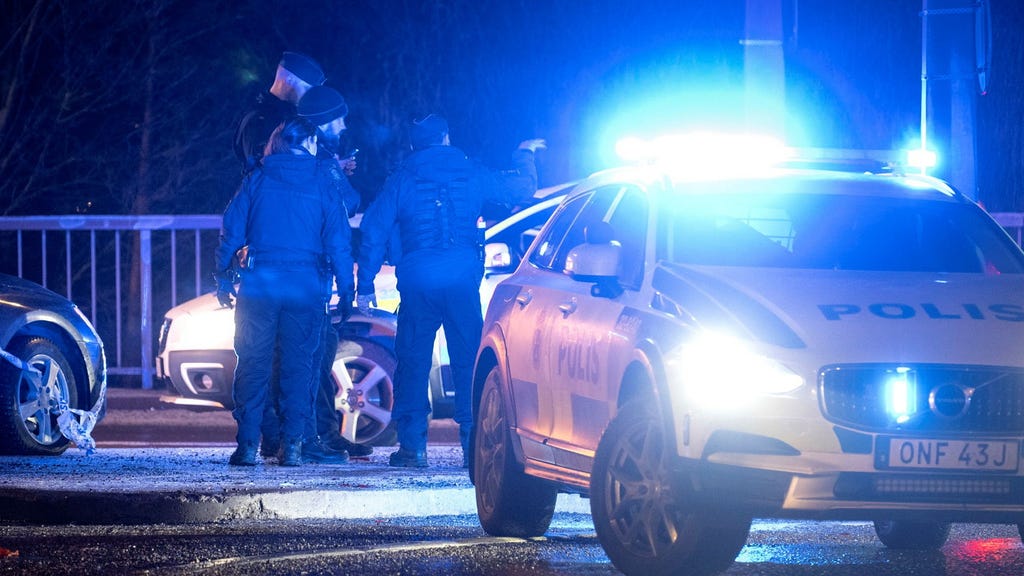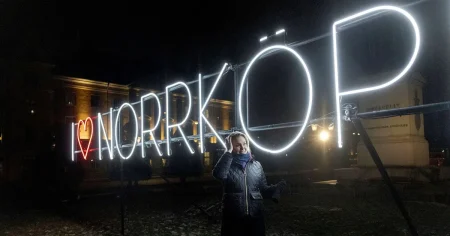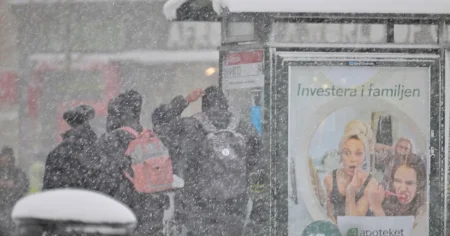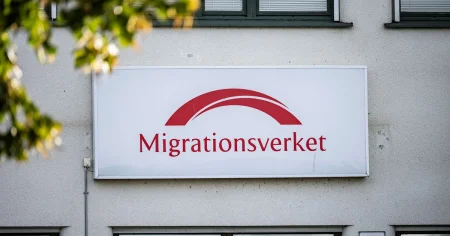The landscape of Swedish politics has undergone a significant shift, with crime and law enforcement emerging as dominant issues in recent years. A decade ago, these concerns were largely peripheral, but the escalating gang violence and shootings have propelled them to the forefront of public consciousness. This heightened awareness is reflected in recent polls, where crime consistently ranks as the most important issue for voters, surpassing even healthcare, climate change, and education. This prioritization of crime reflects a broader societal anxiety surrounding safety and security, fueled in part by extensive media coverage of violent incidents.
The prominence of crime as a political issue is highlighted by a recent DN/Ipsos poll, which reveals that over a quarter of voters identify it as one of their primary concerns. This finding aligns with a broader trend observed over the past few years, where crime and law enforcement have consistently ranked high on voters’ agendas. While public opinion can fluctuate over time, the sustained focus on these issues suggests a deep-seated concern among the electorate. The poll data underscores the potency of crime as a political wedge issue, with the potential to shape electoral outcomes and influence policy debates.
The influence of media coverage on public perception is a crucial factor in this shift. While the vast majority of citizens are not directly affected by gang violence or shootings, the pervasive media portrayal of these events shapes their understanding of the issue and fuels anxieties. This media-driven perception is particularly noteworthy given that other surveys indicate a high level of personal safety within local communities. This disparity suggests a disconnect between lived experience and perceived threat, where media narratives can amplify anxieties beyond the reality of daily life for most individuals.
The political landscape is further polarized by the varying prioritization of issues among different party affiliations. Voters aligned with the Tidö parties – the Moderates, Liberals, Christian Democrats, and Sweden Democrats – consistently rank crime and law enforcement as top priorities. This shared emphasis on security and order underscores a key uniting factor within this political bloc. The Sweden Democrats, while placing crime second after migration/integration, still highlight its importance within their platform. This focus on crime resonates with a segment of the electorate seeking tougher law enforcement measures and stricter immigration policies.
In contrast, opposition parties emphasize different concerns. Social Democrat voters prioritize healthcare, while supporters of the Center Party, Green Party, and Left Party place climate and environmental issues at the forefront. This divergence highlights a clear ideological divide within the Swedish political spectrum. The emphasis on social welfare and environmental protection by the left-leaning parties contrasts starkly with the right-wing focus on law and order. This polarization reflects differing values and priorities, shaping the political discourse and influencing policy debates.
The survey also reveals demographic differences in issue prioritization. Men tend to prioritize law and order, while women place greater importance on healthcare, education, and climate issues. Educational background also plays a role, with those having only primary or secondary education ranking crime as the most important issue. In contrast, those with post-secondary education prioritize environmental and climate concerns, with crime ranking lower on their list. These demographic variations reflect differing lived experiences and perspectives, influencing political preferences and shaping the broader societal debate on these critical issues. Understanding these nuances is crucial for crafting effective policy solutions that address the diverse concerns of the electorate.














